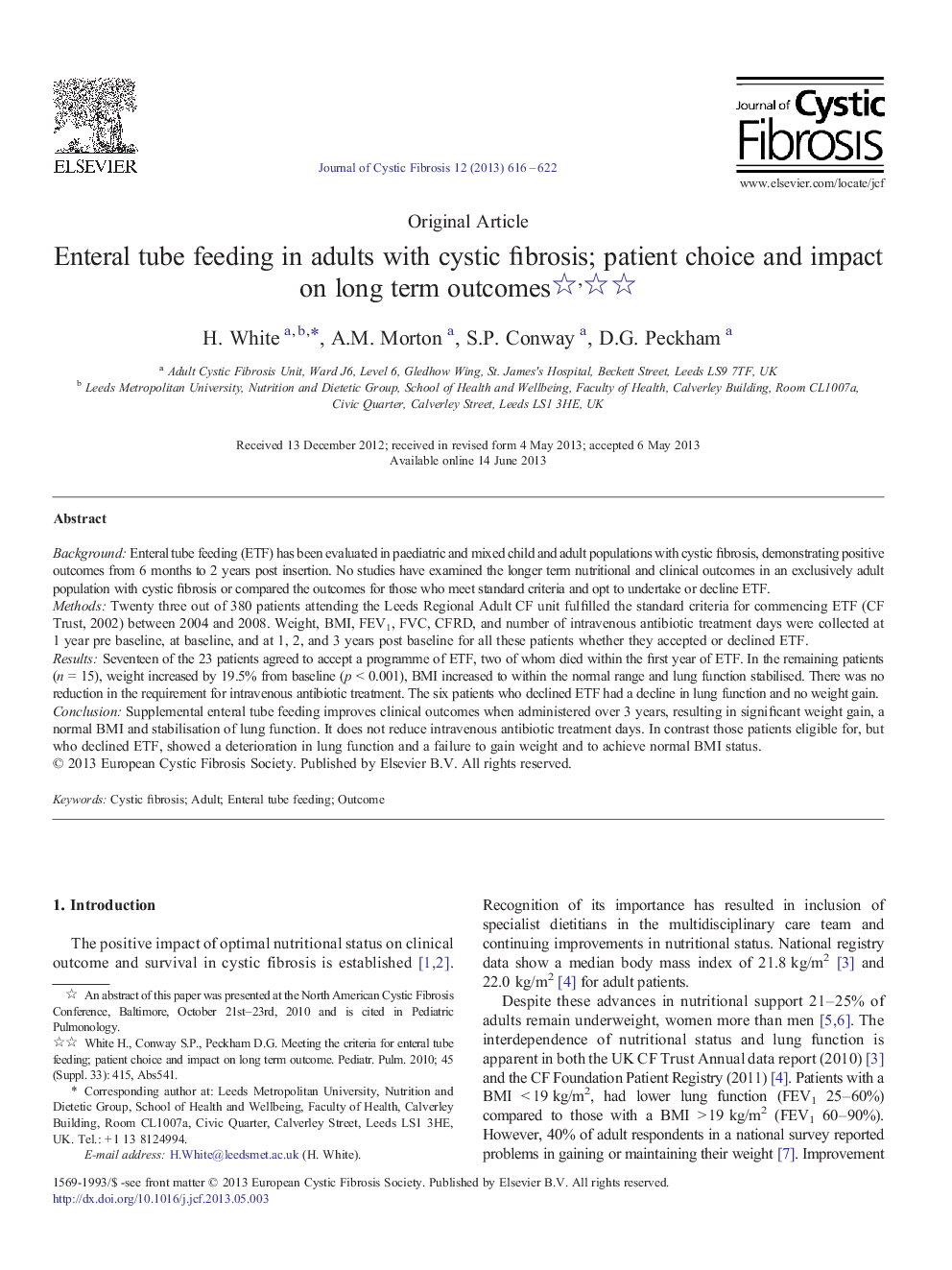| Article ID | Journal | Published Year | Pages | File Type |
|---|---|---|---|---|
| 6240726 | Journal of Cystic Fibrosis | 2013 | 7 Pages |
BackgroundEnteral tube feeding (ETF) has been evaluated in paediatric and mixed child and adult populations with cystic fibrosis, demonstrating positive outcomes from 6 months to 2 years post insertion. No studies have examined the longer term nutritional and clinical outcomes in an exclusively adult population with cystic fibrosis or compared the outcomes for those who meet standard criteria and opt to undertake or decline ETF.MethodsTwenty three out of 380 patients attending the Leeds Regional Adult CF unit fulfilled the standard criteria for commencing ETF (CF Trust, 2002) between 2004 and 2008. Weight, BMI, FEV1, FVC, CFRD, and number of intravenous antibiotic treatment days were collected at 1 year pre baseline, at baseline, and at 1, 2, and 3 years post baseline for all these patients whether they accepted or declined ETF.ResultsSeventeen of the 23 patients agreed to accept a programme of ETF, two of whom died within the first year of ETF. In the remaining patients (n = 15), weight increased by 19.5% from baseline (p < 0.001), BMI increased to within the normal range and lung function stabilised. There was no reduction in the requirement for intravenous antibiotic treatment. The six patients who declined ETF had a decline in lung function and no weight gain.ConclusionSupplemental enteral tube feeding improves clinical outcomes when administered over 3 years, resulting in significant weight gain, a normal BMI and stabilisation of lung function. It does not reduce intravenous antibiotic treatment days. In contrast those patients eligible for, but who declined ETF, showed a deterioration in lung function and a failure to gain weight and to achieve normal BMI status.
